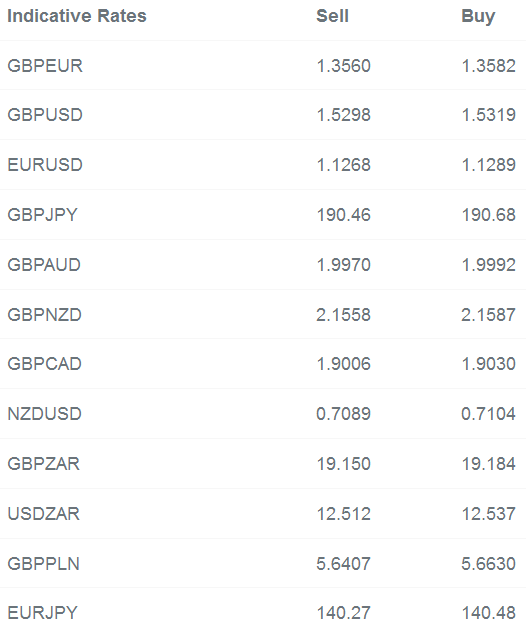Dollar dipped by Obama
Despite the obvious frustrations coming from the Greek situation, euro has remained largely on the front foot following comments that President Obama had concerns that the US dollar may be overvalued. Attempts to row back those comments were unsuccessful yesterday and the greenback has maintained a weak posture overnight. It’s as if Friday’s payrolls announcement never happened.
Sterling slides on CBI
GBP is the only G10 currency that has been unable to gain against the dollar overnight after the Confederation of British Industry downgraded its estimates of the UK economy through 2016. While the reductions in expected UK output were relatively minor – down 0.1% this year and next – the negativity speaks to wider concerns around the impact of an EU referendum. Cameron will not have been enjoying his time in Brussels and Bavaria given the rather torturous briefings about whether ministers within his Cabinet will be allowed a ‘free vote’ on the EU referendum.
Tomorrow night’s Mansion House speech from Bank of England Governor Mark Carney and Chancellor George Osborne is also an obvious signpost for GBP. Last year’s saw Carney surprise markets with a line of ‘rates could be raised sooner than markets currently expect”. We doubt a similar bomb will be dropped on sterling this week given the longer term need for a drive higher in inflation.
Watch the emerging market canary
Despite that gaffe by Obama, dollar remains at strong levels against emerging markets assets, highlighted by the sell-off in Turkish lira following Sunday’s elections, the Brazilian real coming lower on governmental spending cuts and wider Asian currencies getting hit following a poor Chinese inflation measure. The IMF warned last week that the Federal Reserve should postpone rate rises until next year in a bid to try and protect the uneasy balance that we have in markets at the moment. Emerging markets are where the canaries live for these issues, and rising currency volatility, bond yields and credit default swap prices are all likely in the coming year.
Volatility expected down under
Yesterday saw the dollars of Australia and New Zealand decline as traders once again positioned for poor data and a central bank rate cut respectively. Thursday morning will see both the latest jobs data from Australia and the June rate decision from the Reserve Bank of New Zealand. Calling these currencies has been a pain in recent weeks with the labour market data from Australia particularly volatile. I can easily see a RBNZ rate cut, however, and a lower NZD as a result.
For today, the data calendar is relatively quiet with only the first revision to Eurozone GDP for Q1 of any note. We and the market expect growth to remain at 0.4%.

